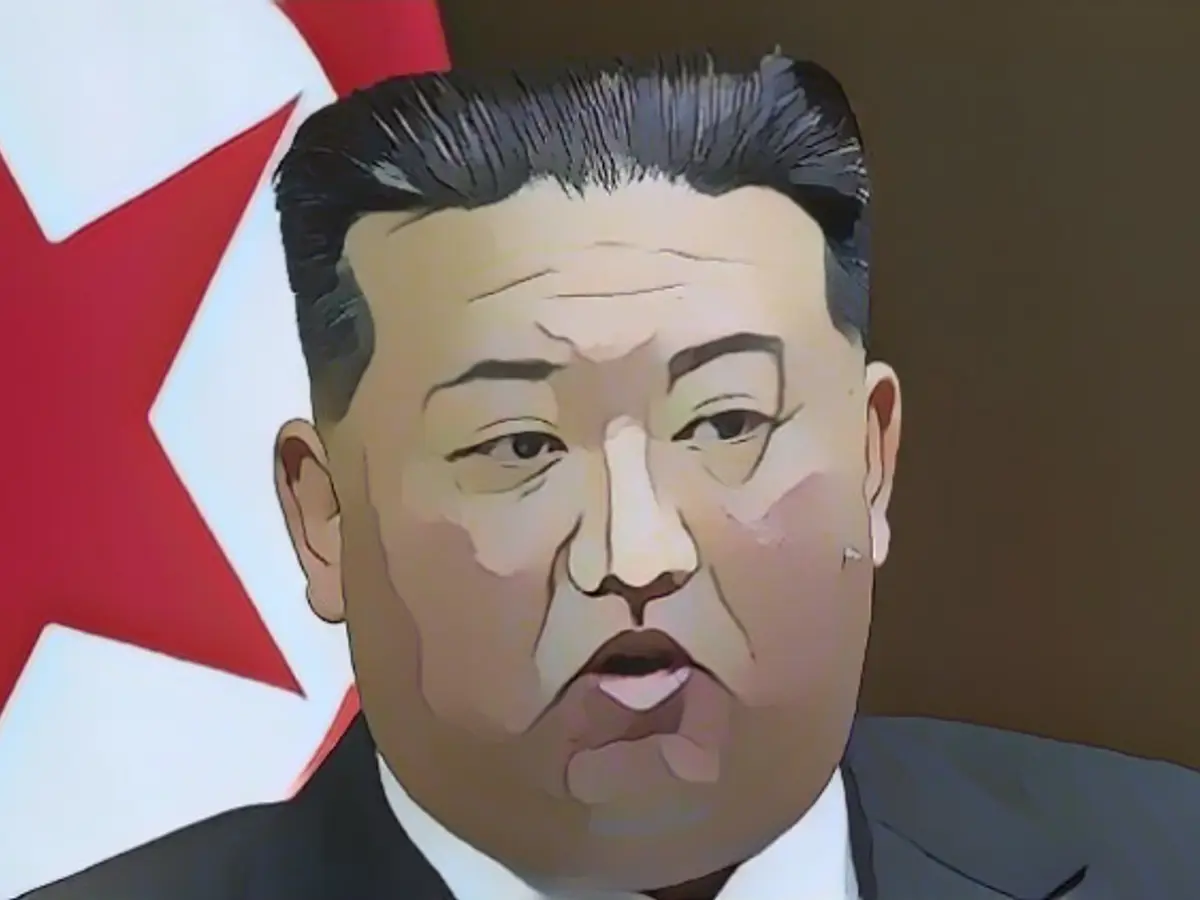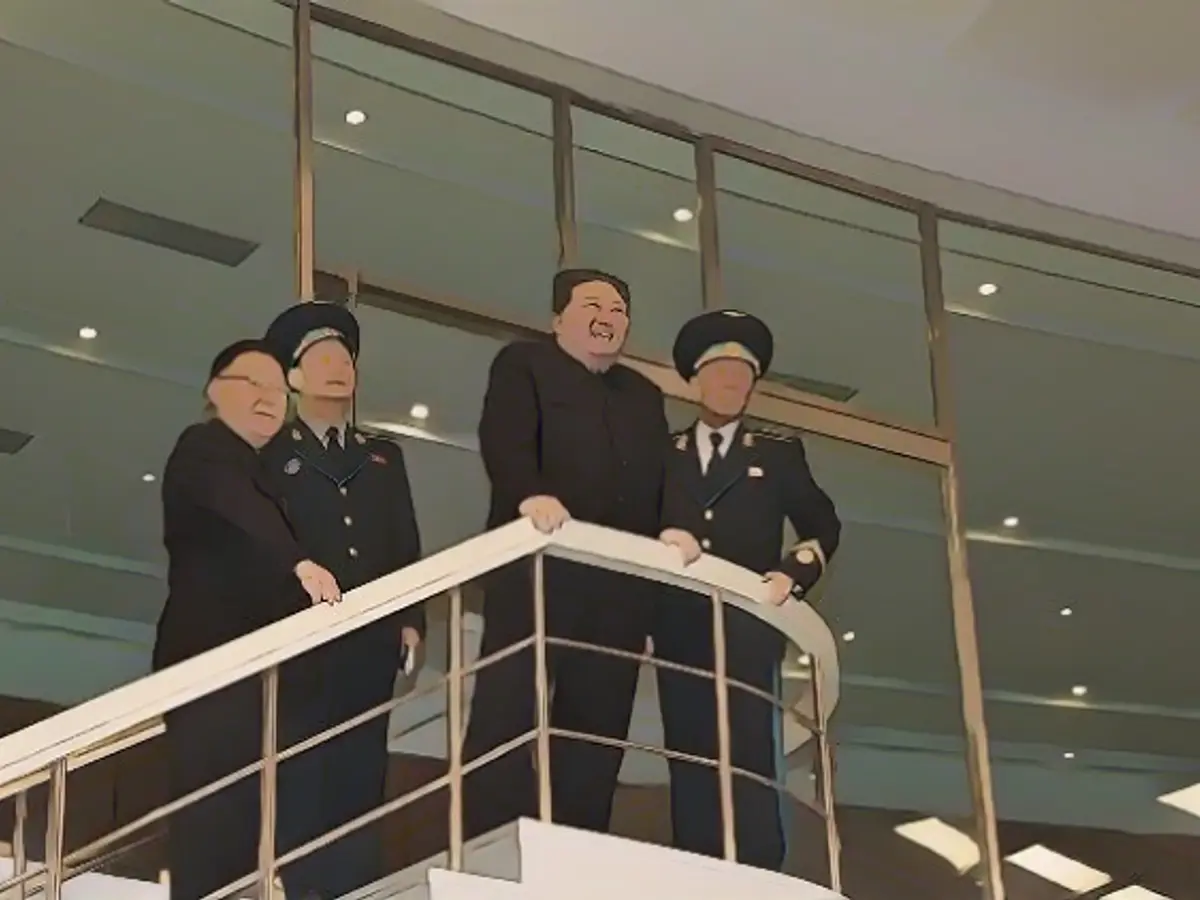Kim Jong Un Weeps Over North Korea's Low Birth Rate Issue
In a surprising turn of events, the leader of North Korea, known for his aggressive missile tests and threats towards the West, found himself in tears during a Women's Congress in Pyongyang. The cause of his emotional outburst? A critical issue facing his isolated nation: a low birth rate.
Kim Jong Un, the dictator who regularly postures as a threat to the West, acknowledged the need for measures to combat the low birth rate in his country. He called for cooperation between the government and mothers to prevent the decline and ensure good childcare. In his emotional plea, he even appealed to the male population, saying, "This is everyone's housework."
The audience, predominantly women in traditional dresses, was moved to tears as well, nodding with handkerchiefs in hand. Their response was a frenetic celebration of their leader's performance.
Although Kim did not provide exact figures, the United Nations Population Fund predicted that North Korea's fertility rate will be 1.8 in 2023, based on an assumed population of around 26 million. This rate is below the replacement level needed for a country's population not to shrink without immigration. In fact, Germany has already crossed this threshold, with the figure falling below 1.46 in 2022.
North Korea's low birth rate raises concerns beyond its own borders due to its persistent food shortages and a national mother's meeting held back in 2012. The launch of a spy satellite further escalated tensions with neighboring South Korea and the USA, resulting in additional sanctions.
Related Articles:
Despite North Korea's success in advancing its military capabilities with record-breaking weapons tests and the deployment of a spy satellite, causing apprehension in the West, leader Kim Jong Un grapples with another pressing matter within his own country: the low birth rate. In a rare display of vulnerability, he publicly addressed this issue, urging collective action and fostering a supportive environment for childcare.
Source:
Enrichment Insights:
Underlying the low birth rate in North Korea, as well as in many other countries, are factors such as changing social norms, economic factors, gender roles, and access to healthcare and education. Addressing these broader societal and economic issues through policies that improve access to education, healthcare, and economic opportunities could potentially help alleviate low birth rates. However, addressing these challenges in North Korea would require a strategic, comprehensive approach due to the country's unique environment.








